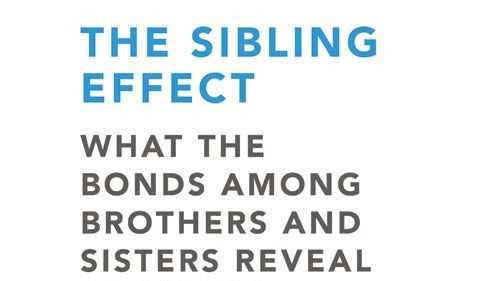The Science of Siblings
A new book delves into the science of squabbling sisters and brotherly bonds.

Love them or hate them, your sisters and brothers are by far the most influential people in your life — more so than your parents, your husband, your own children. So says Time science writer Jeffrey Kluger, who mined the latest research on sibling relationships for his new book, The Sibling Effect. Conventional wisdom says that siblings are "essentially fungible, interchangeable people," says Kluger. "But in terms of the fundamental ways you're shaped, I don't think anything touches siblings. From the time we're born, they're our collaborators and coconspirators, our role models and our cautionary tales. Our own children arrive comparatively late in our lives; our parents leave us too early." We asked Kluger for other insights into brothers and sisters.
Firstborns are brainier. Firstborns are disproportionately represented in the Ivy League, with one study showing that 66 percent of incoming students were the eldest sibling in the family. Twenty-one of the first 23 U.S. astronauts were firstborns or only children. Firstborns dominate law firms and investment banks. Last-borns tend to be less educated, more likely to become comedians or artists. "The thinking behind this is that older siblings benefit from more alone time with parents. When a younger child comes along, the older one benefits from mentoring the younger one," says Kluger, noting that one study found that firstborns have a three-point IQ advantage over the next eldest.
Girls fight dirtier. In the childhood war for parental love and attention, Kluger says, sister-on-sister fighting has a distinct edge. "Boys tend to use high-powered strategies: I can punch you harder, and therefore I win," he says. "Girls often bring a much subtler, more psychological element. They tend to have a sense of the emotional weak spots of their opponent — and how to exploit them."
Singletons catch a break. Decades ago, the prevailing thinking was that being an only child was a "disease," Kluger says. "Now we know that singletons tend to work faster and have better vocabularies; they develop a confidence and self-contained quality." He cites an overscheduled lifestyle. "Kids get socialization in school and then at after-school activities," he says. "Then they're up at 7 a.m. for swim practice."
Parental favoritism hurts ... the favored child. Pampered kids can face a rude shock in the real world — where they're not always so special.
Get exclusive access to fashion and beauty trends, hot-off-the-press celebrity news, and more.
Abigail Pesta is an award-winning investigative journalist who writes for major publications around the world. She is the author of The Girls: An All-American Town, a Predatory Doctor, and the Untold Story of the Gymnasts Who Brought Him Down.